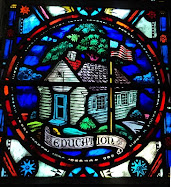MATH SKILLS CHECKLIST
PRESCHOOL - 2ND GRADES
by Virginia Knowles
by Virginia Knowles
Recite the number words in order (1, 2, 3, 4, 5...).
Tally the number of items in a set. (How many pieces are there?)
Group objects into a set to match a given number. (Give me five pieces!)
Compare quantity of items in two sets (more/less).
Compare size (longer/shorter, bigger/smaller, heavier/lighter) without specific measuring.
Add and subtract with hands-on object sets or pictures.
Recognize, name, and write numerals up to 999.
Read and write number words up to ten or one hundred.
Match written numerals with sets of real or pictured objects.
Count by multiples -- twos, threes, fives, tens.
Identify whether a number is even or odd.
Recognize and name shapes (circle, square, triangle, rectangle, oval, etc.).
Learn characteristics of shapes (lines, corners, angles, numbers of sides).
Recognize and name geometric solids (cube, cone, cylinder, sphere).
Classify items by size and shape, and group similar items into sets.
Introduce Roman numerals 1-100 (I=1, V=5, X=10, L=50, C=100).
Introduce ordinal numbers in numeral or word form (1st, 2nd, 3rd... first, second, third...)
Memorize addition facts up to sums of 18.
Memorize subtraction facts up to minuends of 18.
Introduce fact families (4+5=9, 5+4=9, 9-4=5, 9-5=4).
Recognize math symbols (+, -, =, >, <).
Do basic written arithmetic problems (add and subtract). Introduce two-digit addition and subtraction with regrouping (borrowing and carrying).
Do hands-on or visual multiplication and division (groups of equal sets).
Practice simple word problems, and be able to choose the correct arithmetic operation.
Use logic to solve more complicated problems.
Check to see if an answer is reasonable.
Read and understand a simple graph or chart.
Understand visual and hands-on fractions (1/2, 1/3, 1/4).
Introduce place value (ones, tens, hundreds).
Recognize money (coins and paper currency) and compute value.
Recognize time on clock (start with whole hours, then smaller increments).
Understand calendar time (days, weeks, months, years, decades).
Understand time vocabulary and abbreviations (AM, PM, BC, AD).
Understand relationships of time increments (1 minute=60 seconds, 7 days=1 week, etc.)
Introduce standard versus metric scales of measurement.
Introduce measurement vocabulary, abbreviations and symbols (inch/in./”, pound=.lb)
Select the correct measuring device for a task.
Measure length using inches/feet/yards and centimeters/meters.
Measure weight using ounces/pounds and milligrams/grams/kilograms, etc.
Measure volume using teaspoons, ounces, cups, pints, quarts, milliliters, liters, etc.
Measure temperature using Fahrenheit and Celsius/centigrade scales.
Use estimation for measuring.
This list is from my book Common Sense Excellence: Faith-Filled Home Education for Preschool to 5th Grade. There is another list for 3rd-5th grade.
Just a few others notes from my math chapter...
"I want my children to develop a sense of wonder as they explore math concepts, as well as lay a solid foundation for further study. Math may seem like such a neutral subject, but its fascinating principles reflect our Creator’s design. Math teaches us about equity, order, structure and absoluteness. Gaining excellence in this area enables us to be people of integrity and accuracy in a world where cheating and shortcuts are too easy. Children who have a hard time seeing the relevance of the worksheet in front of them may gain a new appreciation and motivation for math if they see that these skills are vital for hobbies, cooking, travel, personal safety, business transactions, and career success. In the elementary grades, I want my children to understand concepts and memorize facts. These essential and complementary facets of math education should not be pitted against one another, but used to balance and enhance each other. Demonstration and drill are both important. Sequence and structure are not as romantic as pure “discovery math” but they become more and more crucial as students advance past the primary grades. Hands-on discovery math is still very important as it supplements your math program."
Thanks for stopping by! You most likely found me on a web search for math skills, but while you're here, let me invite you to pop on over to my main blog, Virginia's Life, Such As It Is or my middle school blog.
May God bless you richly as you learn to COUNT on him today! His VALUE is immeasurable, and he MULTIPLIES blessings! (Sorry, couldn't resist the puns!)

















Where is the 3-5 grade list?
ReplyDeleteI just posted the 3rd-5th grade list!
ReplyDelete